The 9th World Peace Forum (WPF) opened at Tsinghua University on July 3, with the theme “International Security Cooperation in the Post-Pandemic Era—Upholding and Practicing Multilateralism.”
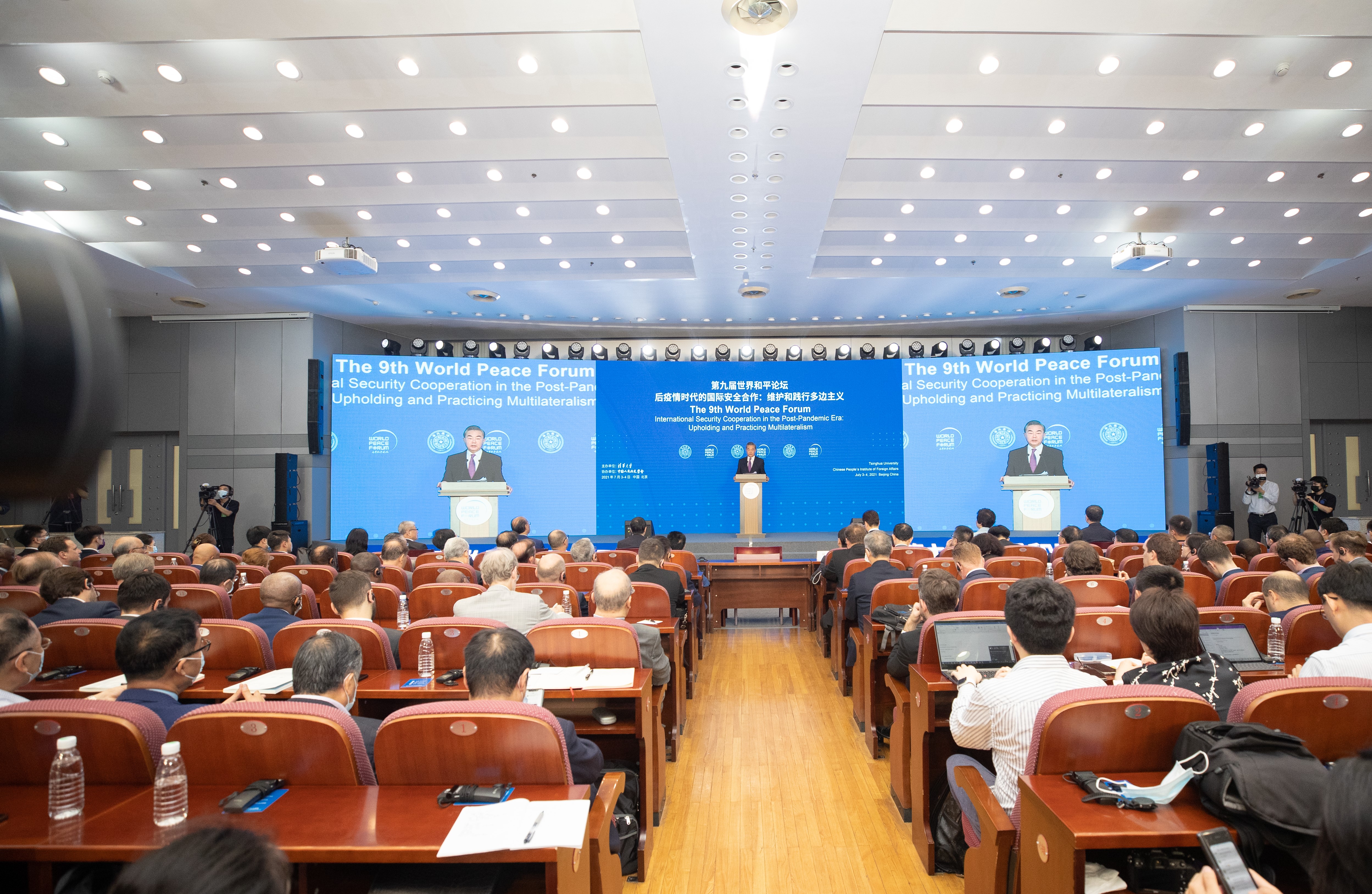
Chinese State Councilor and Foreign Minister Wang Yi attended the forum and delivered a keynote speech.
Fukuda Yasuo, former Prime Minister of Japan, Goh Chok Tong, former Prime Minister of Singapore, Hamid Karzai, former President of Afghanistan, Kevin Michael Rudd, former Prime Minister of Australia, Herman Van Rompuy, former President of the European Council, Ban Ki-moon, former Secretary-General of the UN, and Surakiart Sathirathai, former Deputy Prime Minister of Thailand, attended the forum, which is China’s first non-governmental high-level forum on international security jointly initiated by Tsinghua University and the Chinese People’s Institute of Foreign Affairs in 2012.
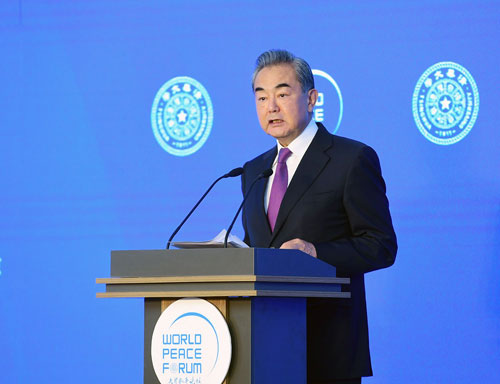
Upholding and practicing true multilateralism is the only way to solve the complex problems in today's world to achieve lasting peace and common security, said Chinese State Councilor and Foreign Minister Wang Yi in his speech.
Recalling Chinese President Xi Jinping's remarks at a gathering marking the centenary of the Communist Party of China in Beijing on Thursday, Wang said that China has always stayed committed to the path of peaceful development, opposed hegemony and power politics, and will use its achievements in development to provide the world with new opportunities.
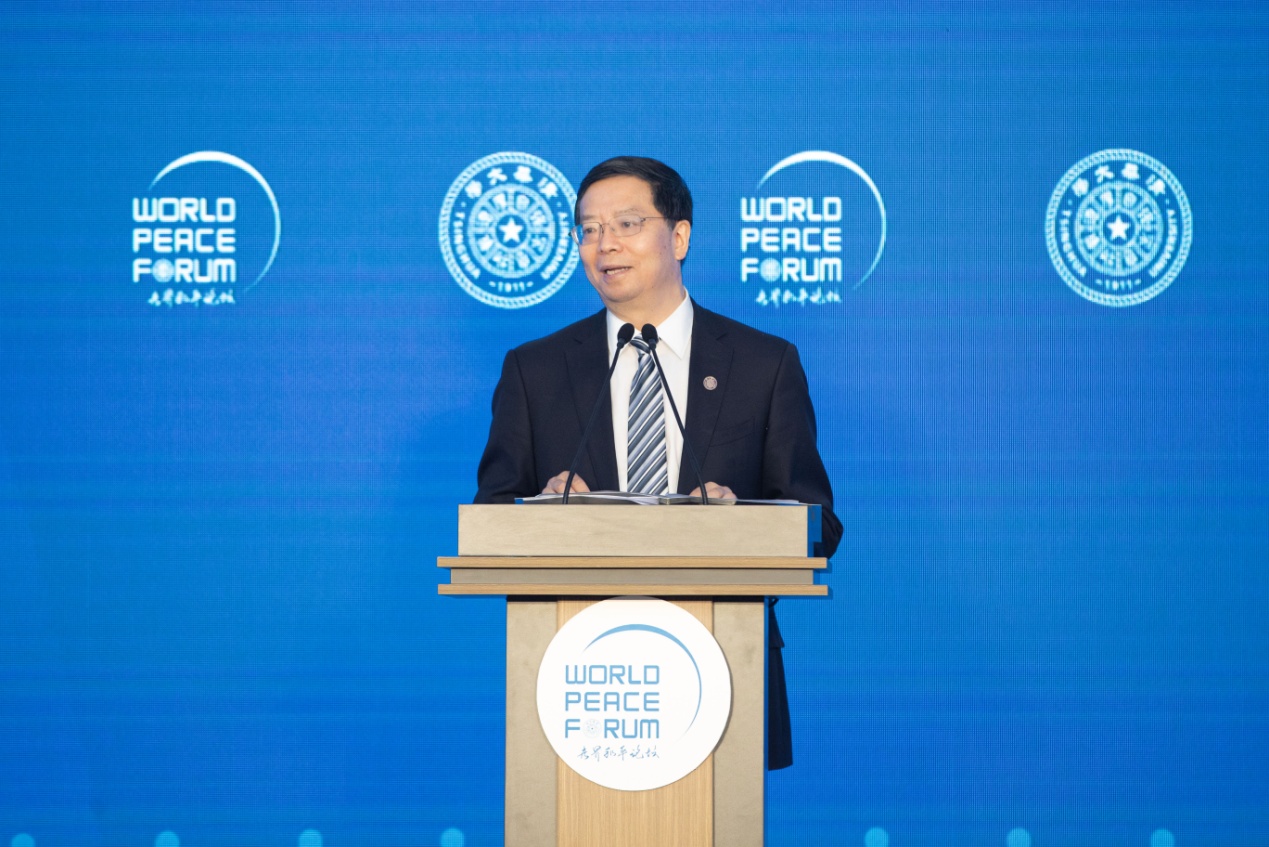
Tsinghua University President Qiu Yong, who is also Chairman of the forum, delivered the welcoming remarks at the opening ceremony of the forum.
He stated that since its founding, the forum is committed to cooperation, openness, inclusiveness, and innovation to uphold international security dialogue, to promote mutual understanding and innovative thinking, and to contribute to the world’s peace and stability.
President Qiu expressed his hope that all participants will speak their mind freely on the theme of the forum and contribute their wisdom to international security cooperation, multilateralism, and world peace in the post-COVID-19 era.
Wang Chao, President of the Chinese People’s Institute of Foreign Affairs, Chen Xu, Chairperson of Tsinghua University Council, Li Huilai, Vice President of the Chinese People’s Institute of Foreign Affairs, Fu Ying, former Vice Minister of Foreign Affairs and the current President of the Institute of International Relations at Tsinghua, and Yan Xuetong, Secretary-General of the World Peace Forum, attended the Forum. Tsinghua University Vice President and Provost Yang Bin moderated the forum’s opening ceremony.
The opening ceremony was followed by a plenary session held under the theme “Reassessing the International Order.” Fukuda Yasuo, former Prime Minister of Japan, Ban Ki-moon, former Secretary-General of the UN, and Kevin Michael Rudd, former Prime Minister of Australia, delivered their remarks.
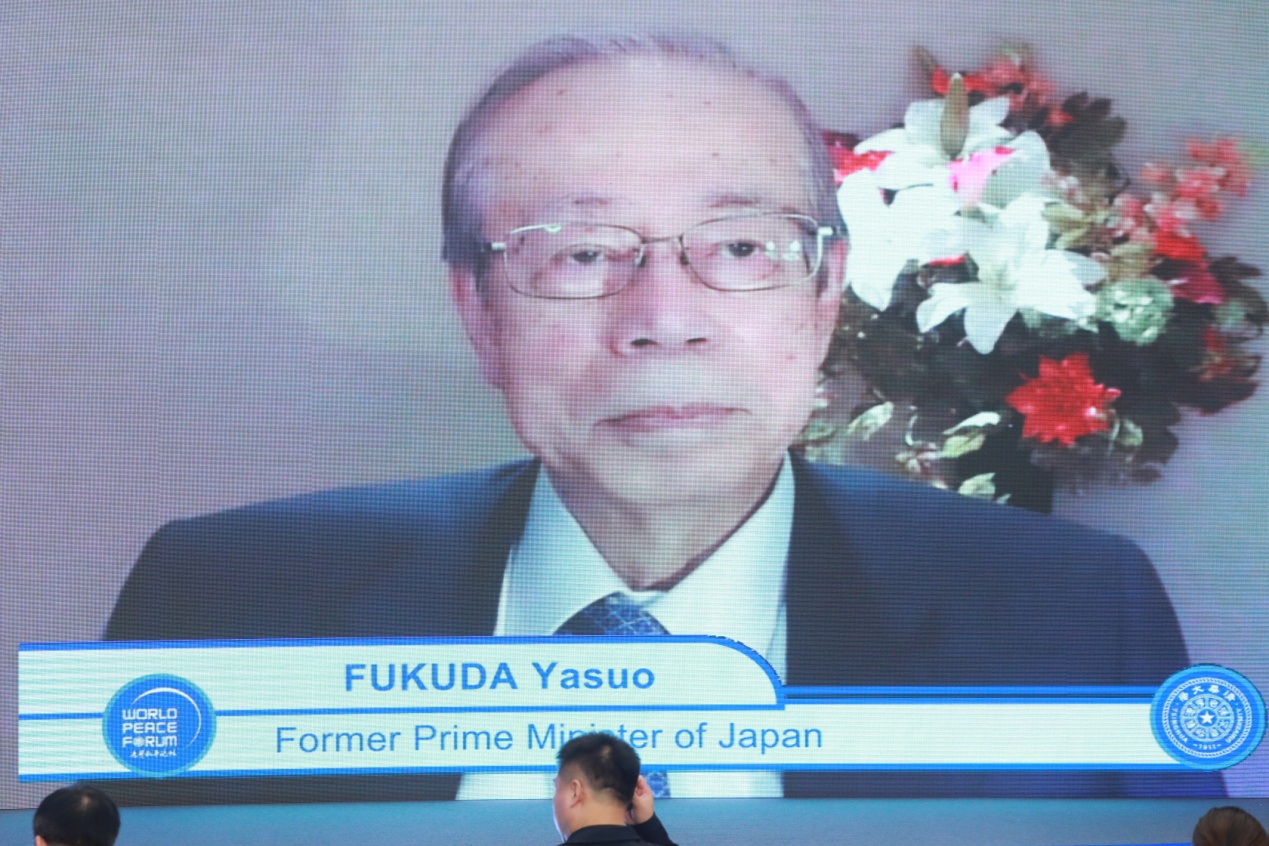
Former Japanese Prime Minister Fukuda Yasuo said that China, the United States and Japan must work together to address common challenges faced by humanity. He also highlighted the importance of exchanges between young people between China and Japan to better understand the importance of the relationship between the two countries.
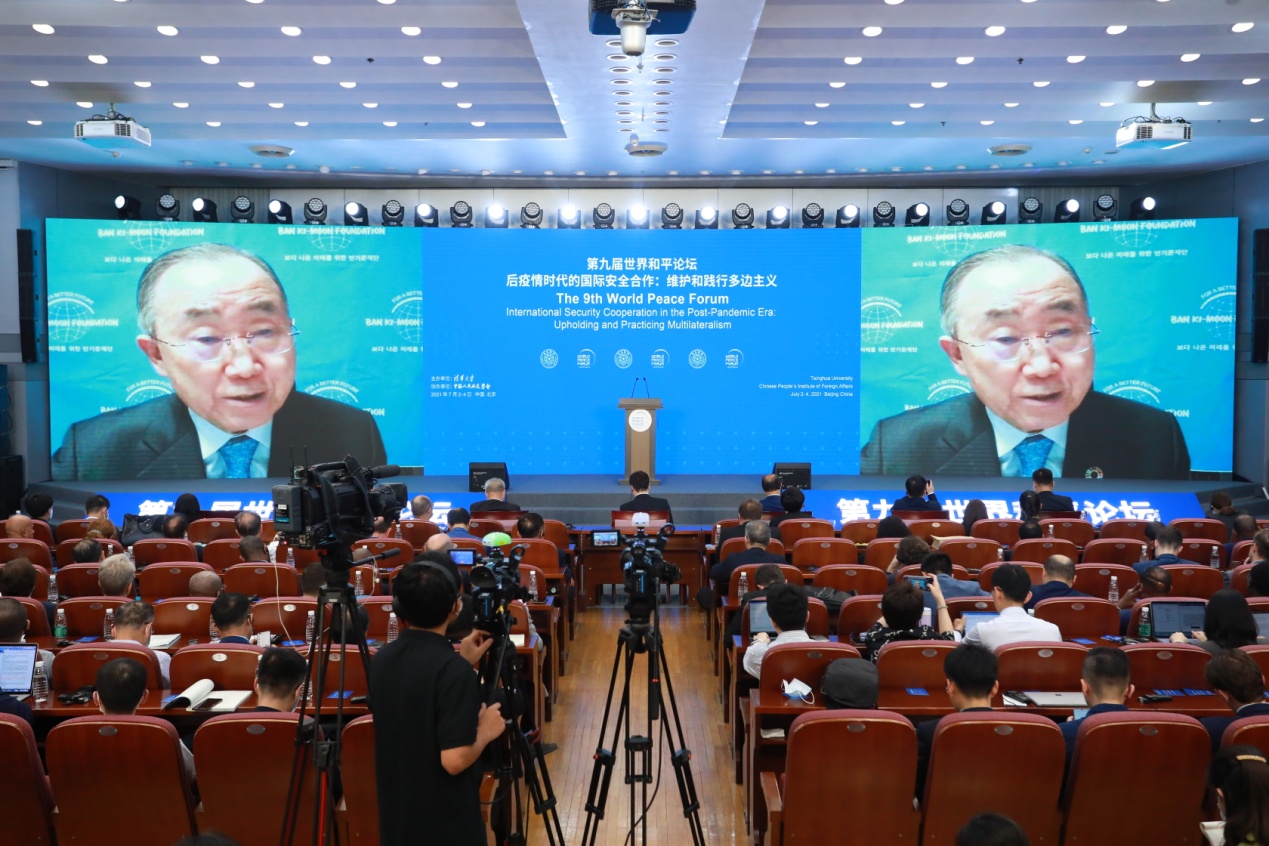
Stating that the COVID-19 pandemic and climate change are two most serious challenges facing humanity, former Secretary-General of the UN Ban Ki-moon called on all nations and stakeholders to redouble their efforts in elevating cooperation and partnership in pursuit of vaccinating the world, achieving the UN Sustainable Development Goals, and taking climate action.
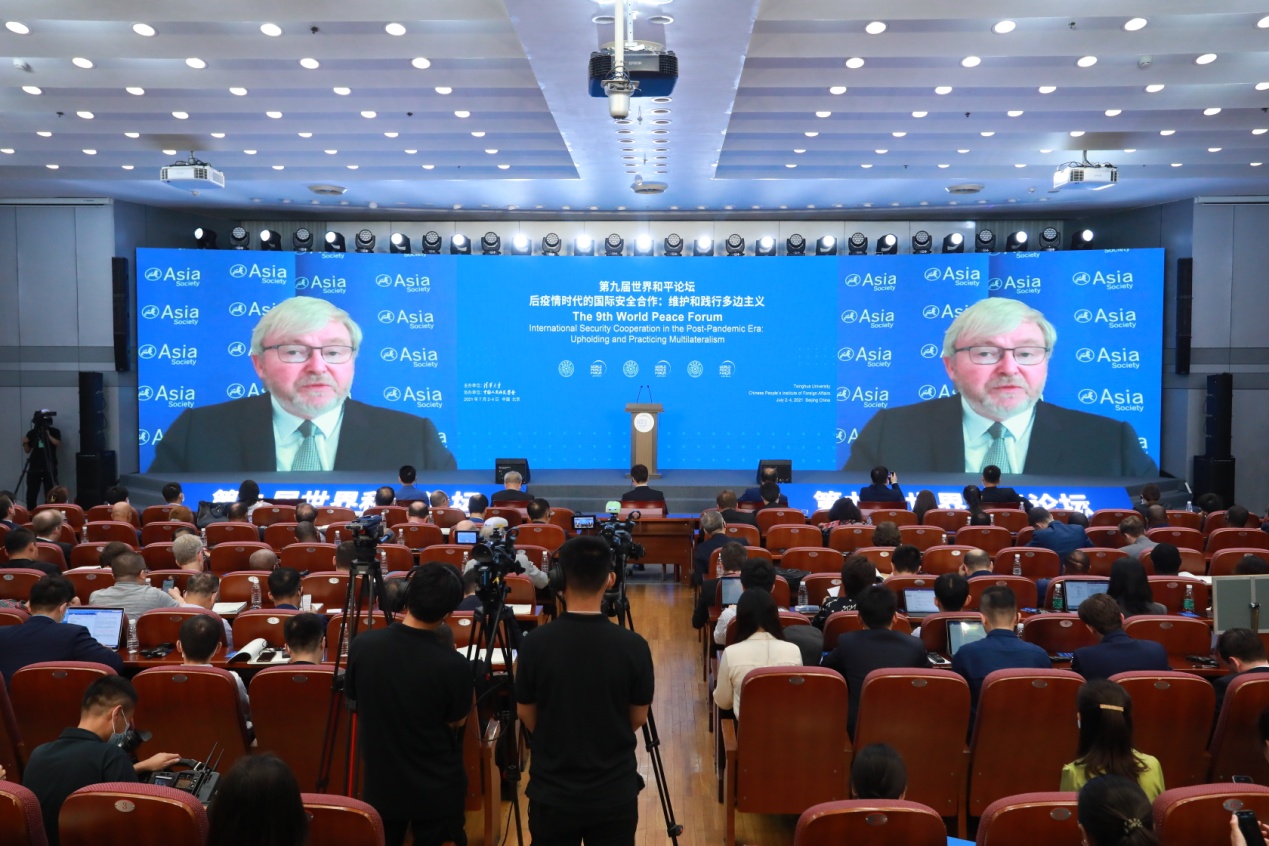
Former Australian Prime Minister Kevin Michael Rudd shared his views on the international order and U.S-China relations in his speech.
The forum includes online meetings, hybrid meetings and offline meetings. Four plenary sessions and 21 panel discussions will be held on three types of security issues: global, regional and thematic. Topics such as geopolitics in the digital age, Asia-Pacific Security Cooperation, Sino-US relations in the new era, and artificial intelligence and its influence on international security, will be covered.
Writer: Sangeet
Editors: Li Han, John Olbrich

